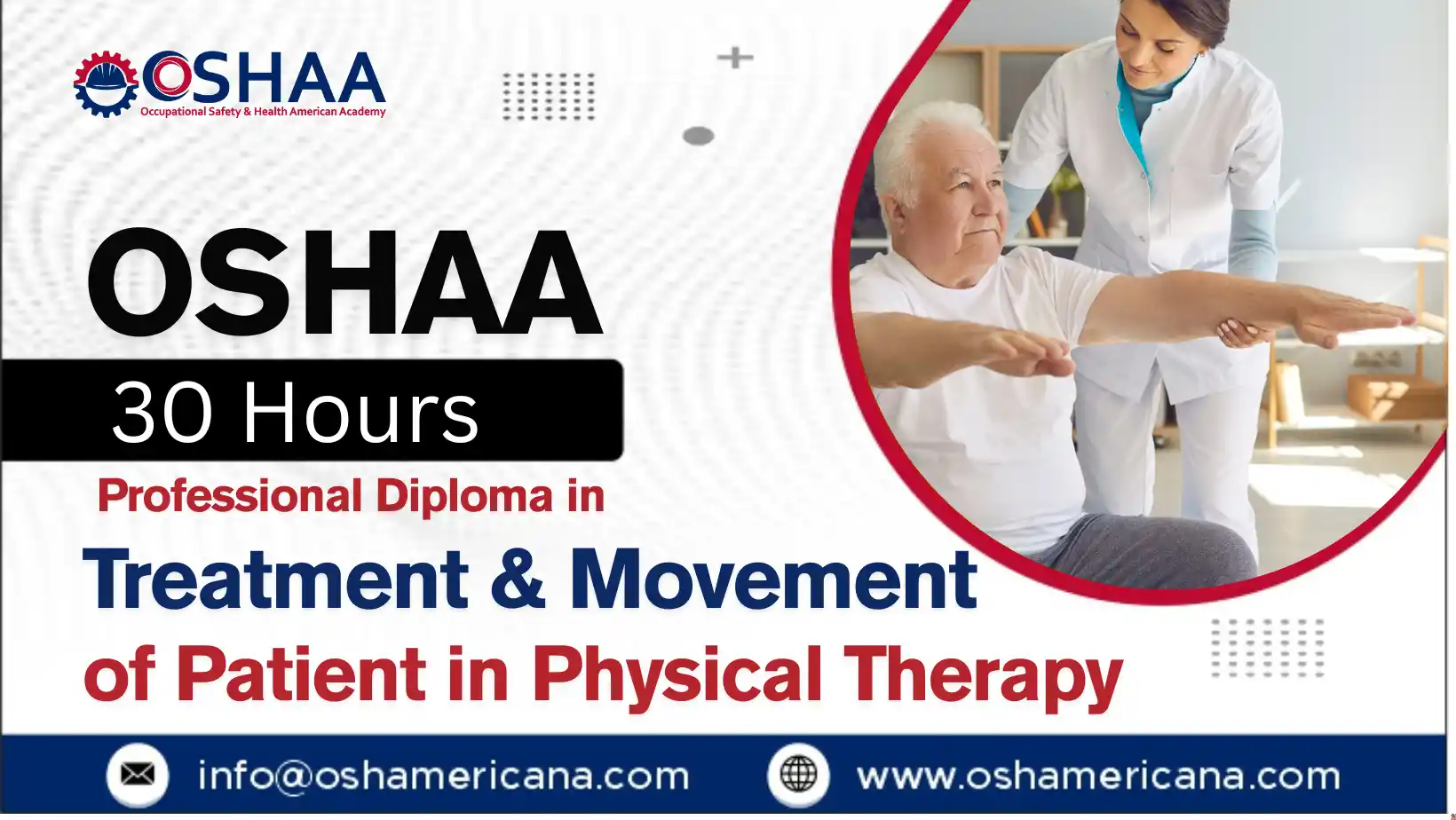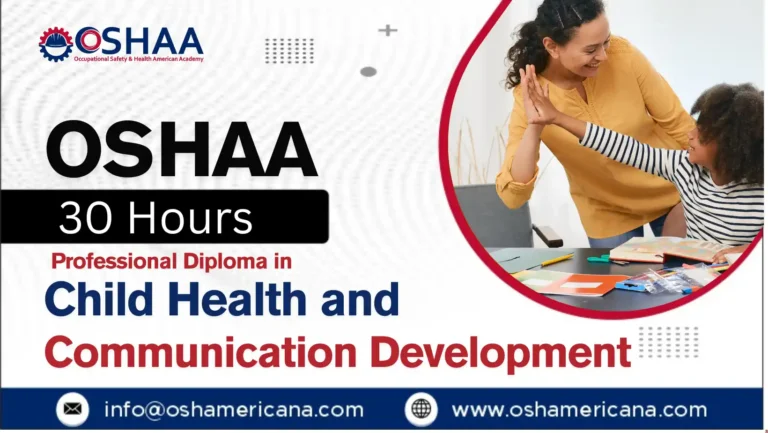The OSHAA 30-Hours Diploma in Treatment and Movement of a Patient in Physical Therapy is a specialised programme designed to equip participants with the essential knowledge and practical skills required to support patients undergoing physical rehabilitation. This professional diploma is an ideal pathway for individuals aiming to advance their careers in physiotherapy, healthcare support, or rehabilitation services.
The diploma course covers a comprehensive range of topics central to the principles of physical therapy, focusing on safe, effective, and ethical practices. Participants will gain a solid understanding of patient mobility, therapeutic positioning, transfer techniques, and manual handling procedures. The curriculum is aligned with international best practices and adheres to occupational safety and health standards to ensure the safety of both patients and healthcare providers.
The OSHAA 30-Hours Diploma in Treatment and Movement of a Patient in Physical Therapy is a valuable qualification for anyone looking to make a meaningful impact in patient care. Whether you are starting your journey in healthcare or seeking to enhance your expertise, this course provides the critical skills and recognised certification needed to thrive in the field. Invest in your professional development and join the ranks of trained healthcare professionals committed to excellence in physical therapy.
OSHAA 30-Hours Diploma in Treatment and Movement of a Patient in Physical Therapy
Study Units
Learning Outcomes
Introduction to Physical Therapy and Rehabilitation Principles (3 hours)
- Understand the fundamental concepts and goals of physical therapy and rehabilitation
- Identify different types of physical therapy interventions and their applications
- Recognise the role of rehabilitation in patient recovery and quality of life improvement
Anatomy and Physiology Relevant to Movement and Mobility (4 hours)
- Describe key musculoskeletal structures involved in movement and support
- Explain the basic functioning of muscles, joints, and the nervous system in mobility
- Apply anatomical knowledge to understand patient movement limitations
Patient Assessment and Care Planning (5 hours)
- Conduct basic patient assessments related to physical therapy needs
- Develop effective, individualised care plans based on patient conditions
- Set realistic goals for treatment and monitor patient progress
Safe Patient Handling and Manual Techniques (4 hours)
- Demonstrate correct manual handling techniques to reduce injury risk
- Apply safe lifting and transferring procedures for different patient needs
- Understand legal and ethical responsibilities related to manual handling
Use of Assistive Devices and Transfer Equipment (3 hours)
- Identify common assistive devices used in physical therapy
- Demonstrate safe and effective use of equipment such as wheelchairs and walkers
- Assess patient suitability for various assistive tools
Therapeutic Positioning and Bed Mobility (5 hours)
- Perform therapeutic positioning techniques to enhance patient comfort and recovery
- Assist patients with bed mobility tasks safely and effectively
- Prevent complications such as pressure sores through correct positioning
Mobility Training and Gait Assistance (4 hours)
- Support patients in improving mobility through gait training exercises
- Recognise and address common mobility challenges and balance issues
- Encourage independence in movement with appropriate supervision
Infection Control and Workplace Safety in Therapy Settings (2 hours)
- Apply infection prevention protocols in physical therapy environments
- Maintain a safe workplace through hazard identification and risk management
- Understand policies and procedures related to health and safety compliance
Therapy offers numerous benefits to participants, including:
- Provides internationally recognised certification that enhances professional credibility
- Equips participants with practical skills essential for safe patient handling and movement
- Improves understanding of patient care techniques that support effective rehabilitation
- Enhances employability in diverse healthcare and rehabilitation settings
- Promotes workplace safety through comprehensive training in manual handling and infection control
- Builds confidence in using assistive devices and transfer equipment correctly
- Supports career progression for healthcare assistants, physiotherapy aides, and rehabilitation workers
- Offers flexible learning suited for both beginners and experienced professionals
- Enables participants to contribute positively to patient recovery and quality of life
- Strengthens communication skills within multidisciplinary healthcare teams
This course is designed for:
- Aspiring physiotherapy assistants and rehabilitation support workers seeking foundational knowledge and skills
- Healthcare aides and caregivers involved in patient mobility and physical therapy support
- Nurses and allied health professionals aiming to enhance their competence in safe patient handling
- Individuals working in care homes, hospitals, or community health settings requiring physical therapy knowledge
- Sports therapy assistants and fitness professionals interested in rehabilitation techniques
- Anyone looking to start a career in physical therapy support or improve their qualifications for better job prospects
- Professionals seeking recognised certification to comply with workplace safety and health standards in physical therapy environments







